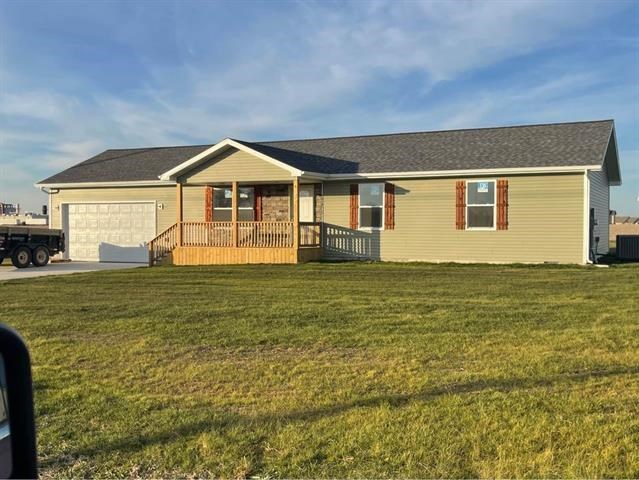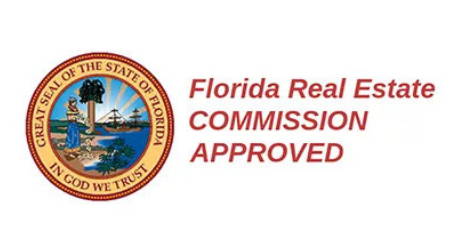
Here's everything you need to learn if you are interested in a Georgia license as a realtor. This article will outline the requirements, Prerequisites and Exam you must pass in order to apply. There are many online resources that can help you study. Let's now look at some tips that can help you pass this exam. You'll soon be able to sell real estate in Georgia!
Prerequisites
You must meet the minimum requirements to obtain a Georgia real estate license. A minimum of 75 hours must be completed in college-level courses. These classes can be taken online or in the classroom. You will need to complete six semester-length or ten quarter-length courses. You will need to complete 75 hours of coursework in realty, agency, contract, and real property. The courses must be accredited. You must submit official transcripts if you have taken a real estate course in another state.
In order to be licensed in Georgia, you must pass an exam. If you're willing and able to do the work, the cost of the exam is approximately $115. Once you've passed the exam, you must complete a licensing application with the Georgia real estate commission. The commission will perform a background check and take fingerprints. Take advantage of a real-estate test prep course to make sure you are familiar with the requirements.

Exam
First of all, you should know that the exam for real estate license in Georgia costs $115. This price may seem high, but it's well worth it. After passing this exam, you'll need to submit an application at the Georgia realty commission. The commission will perform a background check on your character and request your fingerprints. This step is intended to ensure that your file contains current and accurate information.
You can prepare for the exam by enrolling in a Georgia real estate school. You can choose to take the online course, which is typically 75 hours long, or you can opt to take a classroom course. Online courses can be more efficient because you can learn at your own pace and schedule your time. You must be at least 21 years old to apply for a license. Additionally, you must have a high school diploma or GED. You must also not be convicted of any crime.
Requirements
Before you begin the application process for a Georgia real property license, it is important to understand what the requirements are. Georgia has an excellent pass rate. The minimum credit required to pass the exam is six or ten semesters or ten hour credits in real estate agency, contracts, or both. However, if you don't finish the courses in time, you can retake them as many times as you need to.
The approved Broker Prelicense Training Course is required before you can take your test. This course must last for at least 60hrs and be completed with a proctored test. The Georgia MLS Real Estate School is one such approved institution. This school provides all of your training and support to help you pass the exam. If you pass the exam, you can apply in Georgia for your real estate license. The following steps will help you get your license.

Online options
There are many online options available for Georgia real estate licenses. RealEstateU has been voted the most reliable and affordable option. This school has trained more than 40,000 agents across America with its approved 75-hour curriculum. This online course covers everything, from pre-license courses to eBooks in real estate. The course also includes instructor support, exam prep and an unconditional pass-or-don’t-pay promise.
Barney Fletcher Schools, an online school, specializes in Georgia real-estate education. Students have several options to choose from, including live classes on webinar and self-paced online courses. Students have access to tutors, instructors, and interactive tools throughout the course. This program is suitable for novice agents or seasoned agents looking to increase their knowledge. Kaplan, while more costly than other options, offers excellent support online.
FAQ
Should I rent or purchase a condo?
If you plan to stay in your condo for only a short period of time, renting might be a good option. Renting can help you avoid monthly maintenance fees. However, purchasing a condo grants you ownership rights to the unit. The space can be used as you wish.
What are the top three factors in buying a home?
When buying any type or home, the three most important factors are price, location, and size. Location refers to where you want to live. The price refers to the amount you are willing to pay for the property. Size refers how much space you require.
What are the benefits associated with a fixed mortgage rate?
With a fixed-rate mortgage, you lock in the interest rate for the life of the loan. This ensures that you don't have to worry if interest rates rise. Fixed-rate loans have lower monthly payments, because they are locked in for a specific term.
How can I calculate my interest rate
Interest rates change daily based on market conditions. The average interest rate for the past week was 4.39%. Multiply the length of the loan by the interest rate to calculate the interest rate. Example: You finance $200,000 in 20 years, at 5% per month, and your interest rate is 0.05 x 20.1%. This equals ten bases points.
Statistics
- Some experts hypothesize that rates will hit five percent by the second half of 2018, but there has been no official confirmation one way or the other. (fortunebuilders.com)
- Over the past year, mortgage rates have hovered between 3.9 and 4.5 percent—a less significant increase. (fortunebuilders.com)
- 10 years ago, homeownership was nearly 70%. (fortunebuilders.com)
- Private mortgage insurance may be required for conventional loans when the borrower puts less than 20% down.4 FHA loans are mortgage loans issued by private lenders and backed by the federal government. (investopedia.com)
- Based on your credit scores and other financial details, your lender offers you a 3.5% interest rate on loan. (investopedia.com)
External Links
How To
How to Manage a Rental Property
It can be a great way for you to make extra income, but there are many things to consider before you rent your house. We'll show you what to consider when deciding whether to rent your home and give you tips on managing a rental property.
Here are some things you should know if you're thinking of renting your house.
-
What should I consider first? Before you decide if you want to rent out your house, take a look at your finances. You may not be financially able to rent out your house to someone else if you have credit card debts or mortgage payments. Check your budget. If your monthly expenses are not covered by your rent, utilities and insurance, it is a sign that you need to reevaluate your finances. It might not be worth the effort.
-
How much will it cost to rent my house? The cost of renting your home depends on many factors. These factors include your location, the size of your home, its condition, and the season. Prices vary depending on where you live so it's important that you don't expect the same rates everywhere. The average market price for renting a one-bedroom flat in London is PS1,400 per month, according to Rightmove. This means that if you rent out your entire home, you'd earn around PS2,800 a year. While this isn't bad, if only you wanted to rent out a small portion of your house, you could make much more.
-
Is it worthwhile? Doing something new always comes with risks, but if it brings in extra income, why wouldn't you try it? Before you sign anything, though, make sure you understand exactly what you're getting yourself into. You will need to pay maintenance costs, make repairs, and maintain the home. Renting your house is not just about spending more time with your family. You should make sure that you have thoroughly considered all aspects before you sign on!
-
What are the benefits? Now that you have an idea of the cost to rent your home, and are confident it is worth it, it is time to consider the benefits. Renting out your home can be used for many reasons. You could pay off your debts, save money for the future, take a vacation, or just enjoy a break from everyday life. It's more fun than working every day, regardless of what you choose. And if you plan ahead, you could even turn to rent into a full-time job.
-
How do you find tenants? Once you've made the decision that you want your property to be rented out, you must advertise it correctly. Start by listing online using websites like Zoopla and Rightmove. After potential tenants have contacted you, arrange an interview. This will help to assess their suitability for your home and confirm that they are financially stable.
-
How can I make sure that I'm protected? If you fear that your home will be left empty, you need to ensure your home is protected against theft, damage, or fire. In order to protect your home, you will need to either insure it through your landlord or directly with an insured. Your landlord will likely require you to add them on as additional insured. This is to ensure that your property is covered for any damages you cause. However, this doesn't apply if you're living abroad or if your landlord isn't registered with UK insurers. You will need to register with an International Insurer in this instance.
-
If you work outside of your home, it might seem like you don't have enough money to spend hours looking for tenants. Your property should be advertised with professionalism. It is important to create a professional website and place ads online. Additionally, you'll need to fill out an application and provide references. While some prefer to do all the work themselves, others hire professionals who can handle most of it. You'll need to be ready to answer questions during interviews.
-
What should I do once I've found my tenant? If you have a current lease in place you'll need inform your tenant about changes, such moving dates. If this is not possible, you may negotiate the length of your stay, deposit, as well as other details. Keep in mind that you will still be responsible for paying utilities and other costs once your tenancy ends.
-
How do you collect the rent? When the time comes for you to collect the rent you need to make sure that your tenant has been paying their rent. You'll need remind them about their obligations if they have not. After sending them a final statement, you can deduct any outstanding rent payments. If you're struggling to get hold of your tenant, you can always call the police. They will not normally expel someone unless there has been a breach of contract. However, they can issue warrants if necessary.
-
What are the best ways to avoid problems? It can be very lucrative to rent out your home, but it is important to protect yourself. Consider installing security cameras and smoke alarms. You should also check that your neighbors' permissions allow you to leave your property unlocked at night and that you have adequate insurance. You should never allow strangers into your home, no matter how they claim to be moving in.